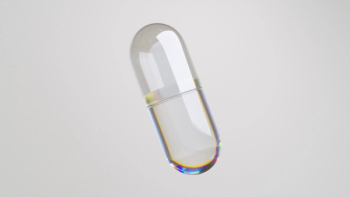
- Nutritional Outlook Vol. 18 No. 8
- Volume 18
- Issue 8
Dietary Supplement Capsules Challenges and Trends
Innovative applications and clean-label demands are transforming and revitalizing this supplement industry mainstay.
Within the overall health and nutrition industry, there is one consumer demand that’s undeniably driving trends: clean label. And on the supplement front, capsule formulators are more than happy-and uniquely poised-to deliver.
“Leading clean-label claims for supplements include allergen-free, vegetarian, and gluten-free,” says Erasmo Schutzer, chief marketing officer at Capsugel (Morristown, NJ), citing recent Mintel findings. The good news is that capsules meet these claims from all sides. “Capsules can be formulated free of additives, starch and gluten, preservatives, and allergens,” he says, “and do not contain the non-nutritive binders, fillers, or disintegrants that may appear in other dosage forms.”
At NutraScience Labs (Farmingdale, NY), vice president of contract manufacturing Vincent Tricarico has noticed a spike in inquiries for capsules, specifically because vegetarian formats are available. But this popularity does not come without its share of challenges.
“Working with non-animal material can be tricky,” says Michael Pappalardo, director of business development at Qualicaps (Whitsett, NC), of the options available. “Tackiness, poor drying, and viscosity are all issues that need to be overcome.” And though cellulose (HPMC) is a suitable alternative that acts most like gelatin in the manufacturing process, it does often require slight differences along the production line when it comes to machinery, he adds.
That said, manufacturers of capsules have reason to be optimistic, since this delivery format boasts many benefits. “First, capsules often provide very favorable processing conditions to maintain the integrity of actives in their final dosage form,” says Schutzer. “A number of actives cannot withstand the processing conditions-mainly heat and compression-associated with the manufacture of tablets.”
Tablets also demand the addition of excipients and binders, Pappalardo points out. This is not only at odds with clean-label trends but also contributes a complexity and cost to the overall process, which can hold up production and release to market. Capsules, by their very nature, avoid the excipient and binder issue altogether.
Plus, like softgels, capsules can deliver liquids, “but many times faster,” Pappalardo maintains, “making them attractive to manufacturers who prefer not to outsource their production.” And once produced, hard gelatin caps can also serve as good oxygen barriers, adds Tricarico, which enhances bioavailability overall.
On the branding side, customizable capsules not only offer manufacturers seemingly endless choice when it comes to color and imprinting, but their very nature supports natural branding initiatives. “You can easily show your consumers the natural elegance of the product they are taking,” Pappalardo adds. “A clear capsule has the potential to really reinforce the natural aspect of the supplement.”
Looking Ahead
Going forward, formulators can expect innovations that push the boundaries of conventional capsules. “Keep a close eye on liquid-fill two-piece capsules and beadlet technology,” says Tricarico. “These are two dosage forms that can lead to some really unique formulation ideas.”
One example of such innovation is Capsugel’s DuoCap, which is a capsule-in-capsule delivery system designed to deliver combination or dual-release products. “DuoCap capsules involve inserting a smaller, pre-filled capsule into a larger, liquid-filled capsule,” explains Schutzer, and has been used to combine such ingredients as prebiotics and probiotics into one dosage form, since the opening of the inner capsule is delayed. The company also offers myriad vegetarian options-Vcaps, Vcaps Plus, DRcaps, and Plantcaps-all of which are preservative- free, GMO-free, and gluten-free to further meet clean-label demands. Capsugel recently announced a $25 million investment to increase production capacity for its vegetarian options.
“There are so many possibilities for capsules in the future,” says Pappalardo, “and the applications for this industry could be exciting.”
Also read:
Articles in this issue
over 10 years ago
Contract Researchers Offer Customized Solutions for Natural Productsover 10 years ago
Softgel Benefits for Dietary Supplementsover 10 years ago
Dietary Supplements and FDA Compliance: An Update on GMPs and 483sNewsletter
From ingredient science to consumer trends, get the intel you need to stay competitive in the nutrition space—subscribe now to Nutritional Outlook.




